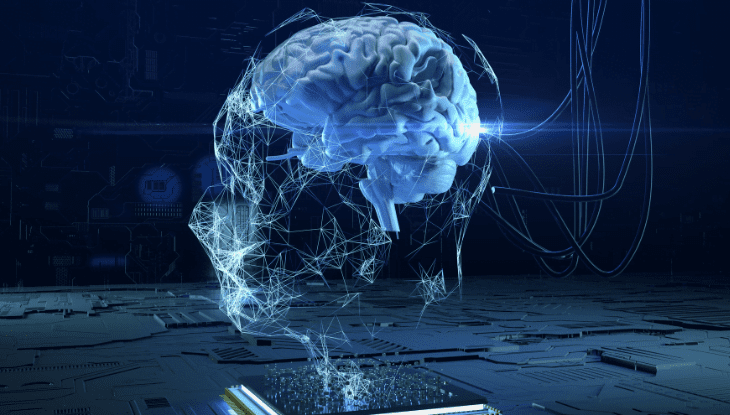Artificial Intelligence in music opens up new horizons for creators, producers, and listeners. This technology is changing the way we compose, produce, and experience music.
Here, you’ll discover how artificial intelligence in music composes songs, supports artists in the creative process, and transforms the music industry. You’ll learn about examples of AI application in music, understand the benefits and challenges associated with its use, and grasp the changes it brings for the future of music.
Artificial Intelligence in Music
Artificial intelligence in music opens new horizons for composers and musicians, allowing for the creation of works in a wide range of genres, from classical to pop. AI algorithms, processing and analyzing vast databases of musical works, learn to recognize and imitate the structures, rhythms, and harmonies characteristic of individual musical styles. This allows them to generate new compositions that captivate with their “humanity” and complexity, sometimes being difficult to distinguish from music created by humans.
By harnessing these advanced technologies, artificial intelligence can not only mimic existing musical styles but also experiment with combinations of rhythms, melodies, and harmonies, creating entirely new sounds. This opens up possibilities for artists and producers to explore previously unknown musical territories without the limitations of human creativity and imagination. Such an approach may contribute to the emergence of new musical genres or unconventional interpretations of familiar works.
Support for Artists
Artificial intelligence in music becomes a valuable ally for artists, providing tools that support their creative process at various stages. By using AI, musicians can more easily explore new musical territories. By generating unconventional ideas or unusual combinations of sounds that may not come to mind during the traditional composition process. Artificial intelligence algorithms can suggest harmonies, melodic lines, or rhythmic patterns. Inspire experimentation with new musical forms, which can lead to the creation of unique works of art. Moreover, AI can automatically handle mastering tracks. This means that artists can focus on the creative aspects of their work, leaving the technical details to the software.
Utilizing artificial intelligence in music also offers the possibility of personalizing the listener’s experience. Artists and producers can use AI to analyze their audience’s preferences, allowing them to create music more tailored to the tastes of their listeners. This gives creators a chance to form deeper connections with their audience, offering them exactly what they are looking for in music. Artificial intelligence opens doors for artists to new forms of expression and interaction with fans while maintaining their unique artistic voice.
Changes in Music Production
AI introduces significant changes in the music production process, making it more accessible and efficient. With AI-powered software, automatic mixing and mastering of tracks are possible. This means that even individuals without extensive technical skills can create high-quality music. This democratizes the music industry, allowing a larger number of artists to share their creativity with the world. They no longer need expensive equipment or hours spent in a recording studio for their tracks to sound professional. Artificial intelligence can automatically adjust levels, balance sounds, and even suggest changes in arrangement. This speeds up the creative process and allows artists to focus on the act of creation itself.
In my opinion, the impact of artificial intelligence on music production is revolutionary and opens up new possibilities for creators at every level of expertise. While some may argue that automation may impoverish the individual character of music, I believe that these tools serve as an extension of human creativity rather than its replacement. They enable experimentation and exploration of musical horizons that would not be possible to achieve without AI assistance. As a result, we may witness the birth of new musical genres and innovative approaches to composition, enriching the global music scene.
Music Education and AI
AI revolutionizes music education, offering tools that can adapt to the individual needs and learning pace of each student. With AI-based applications, beginner musicians can receive personalized instruction that was previously only possible through private lessons. AI algorithms analyze the skills and progress of learners, adjusting the teaching program in real-time, allowing for more effective learning. This approach enables students to make faster progress. Each learning session is tailored to their current skills and educational needs.
The use of AI in learning to play instruments or composition opens up new possibilities for students. They can, for example, use an application that analyzes their instrument playing in real-time. Then provides tips on how to improve technique or musical interpretation. Additionally, AI can assist in composing music, suggesting harmonies or musical motifs that fit the already created parts of the composition. This allows students not only to develop their skills more quickly but also to experiment. Also, to discover music in a way that was previously reserved for more experienced musicians. AI thus becomes an invaluable assistant in developing musical creativity and technique.
Summary – Artificial Intelligence in Music
In light of all the described changes, it becomes clear that artificial intelligence (AI) is constantly transforming the world of music. Opening up new, infinite possibilities. Thanks to AI, both creators, producers, and listeners can experience music on an entirely new level. The music creation process becomes more accessible, democratizing the music industry and allowing a larger number of artists to express their creativity. On the other hand, AI brings elements of personalization and efficiency to music education, which were previously difficult to achieve.

